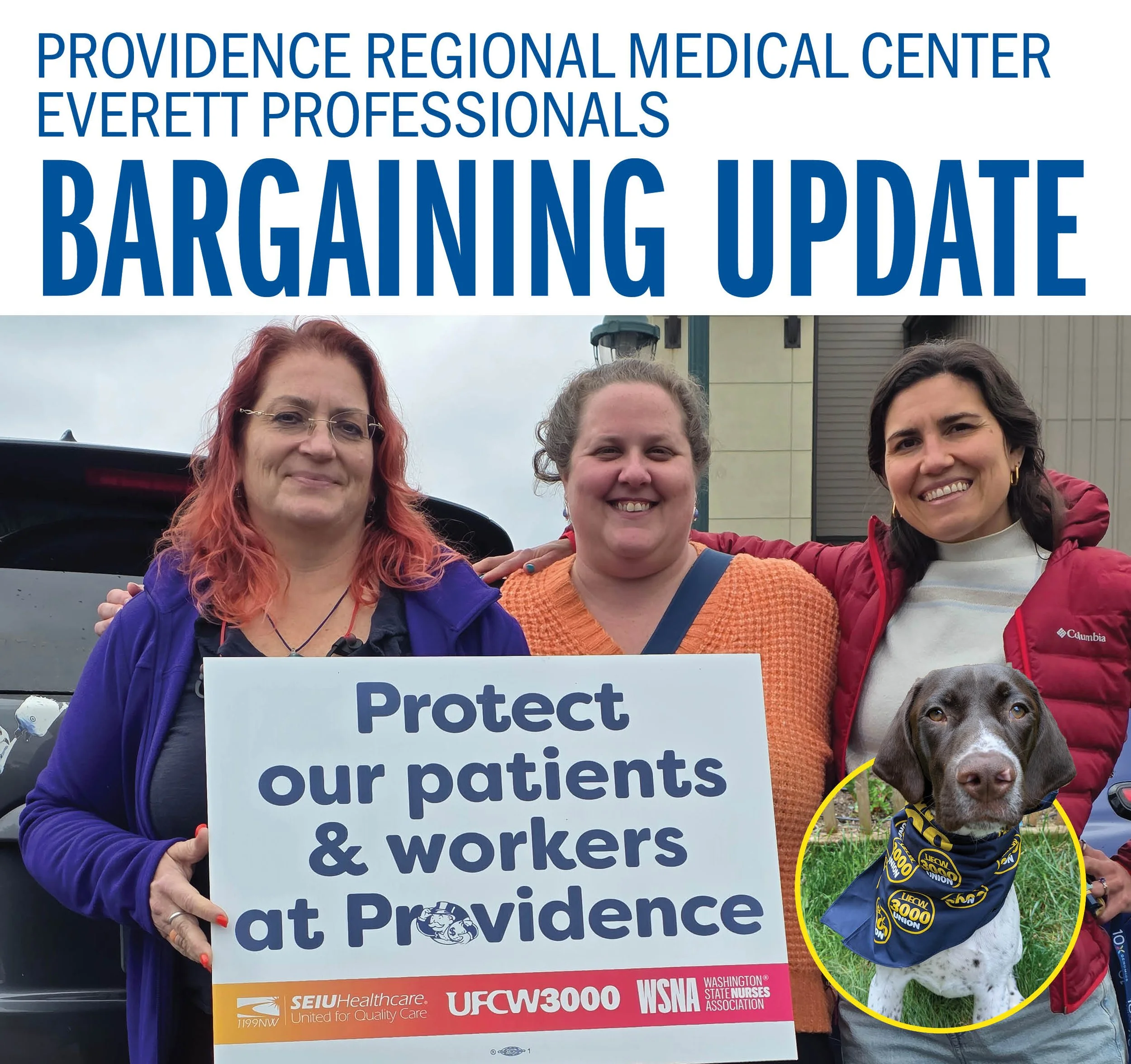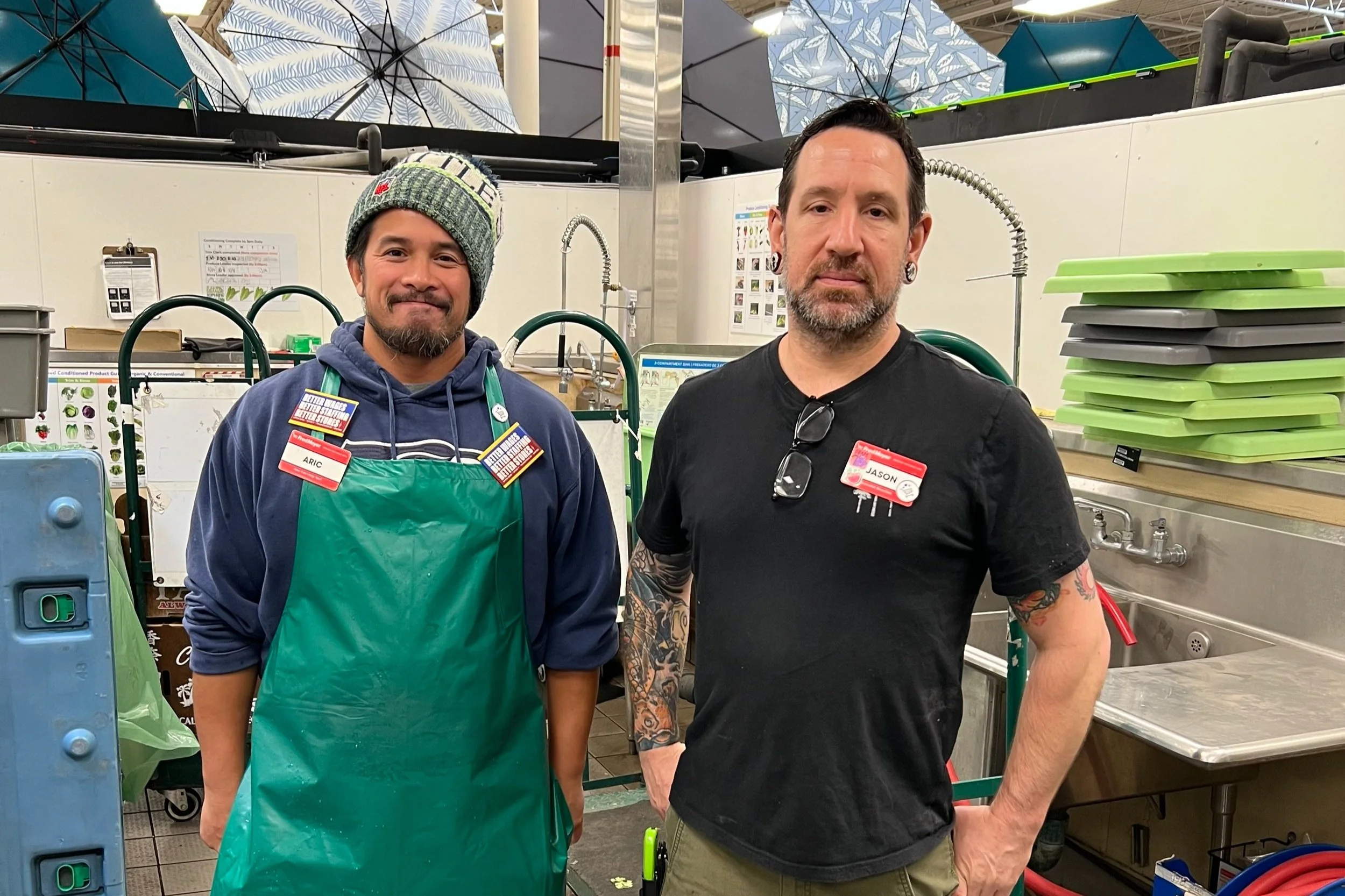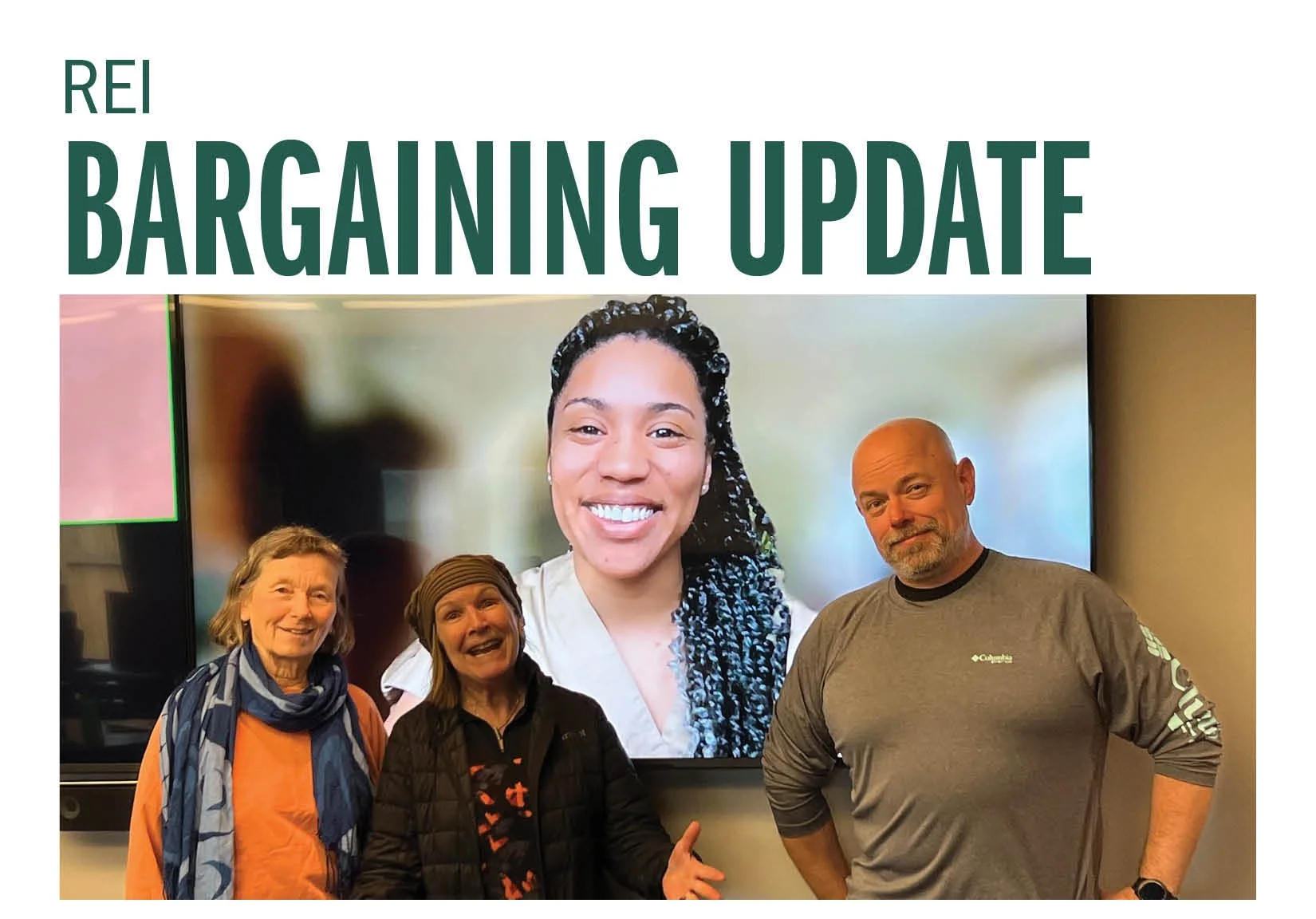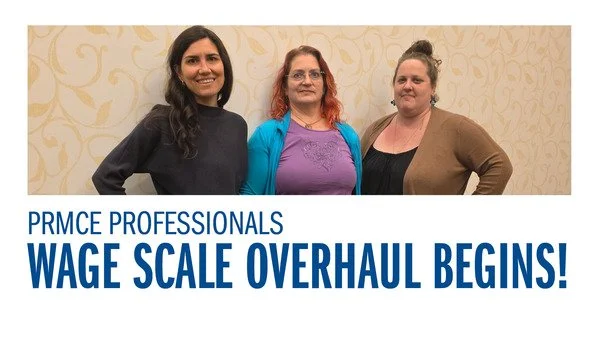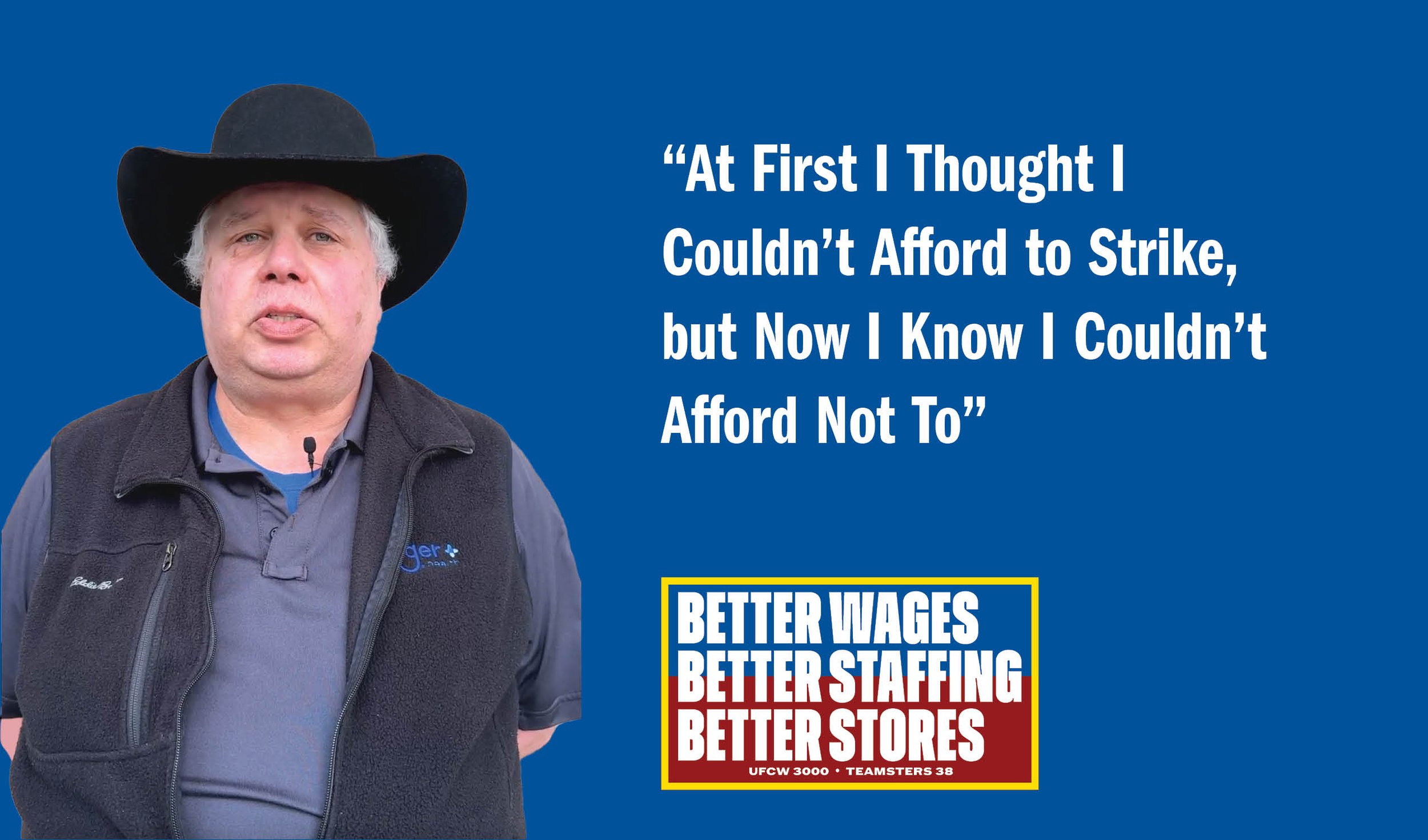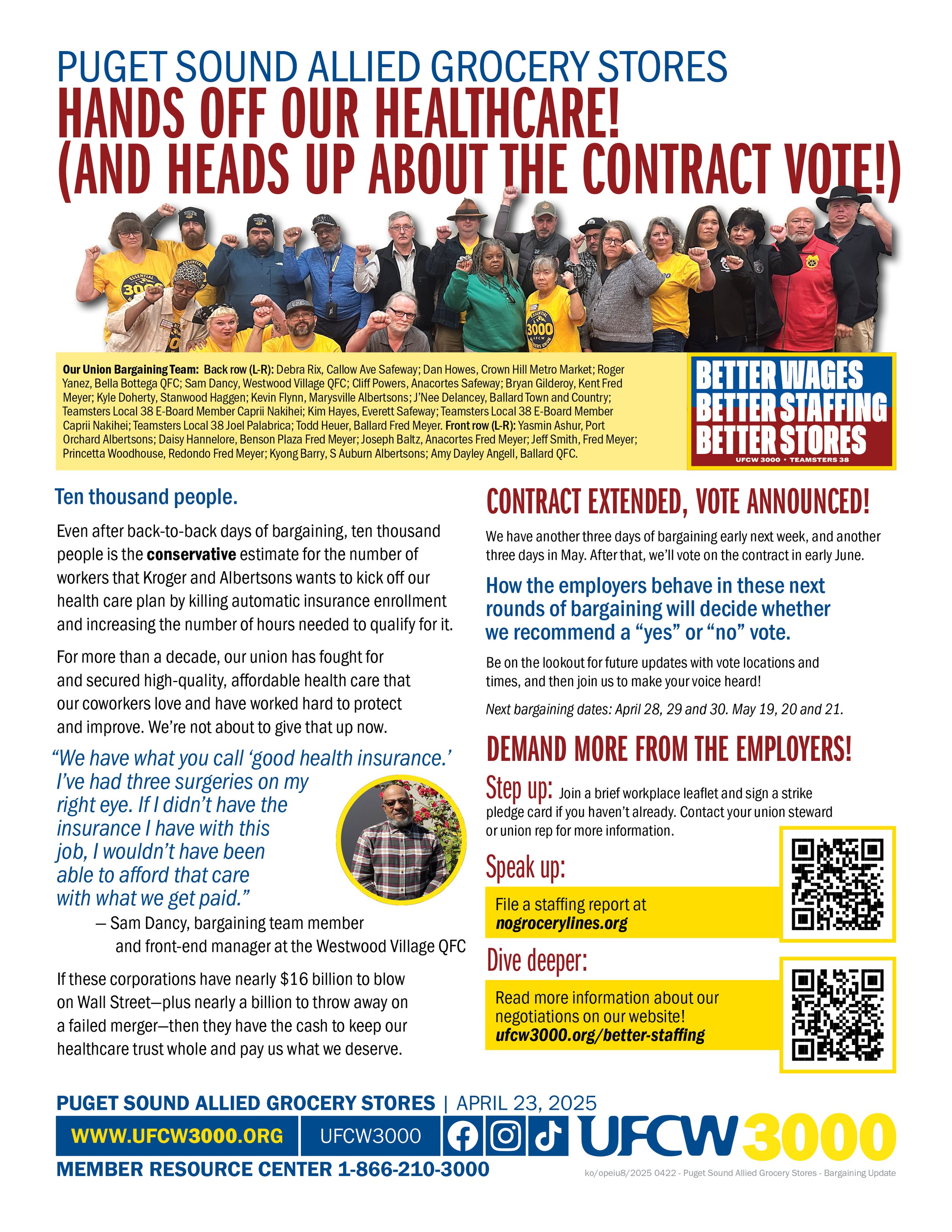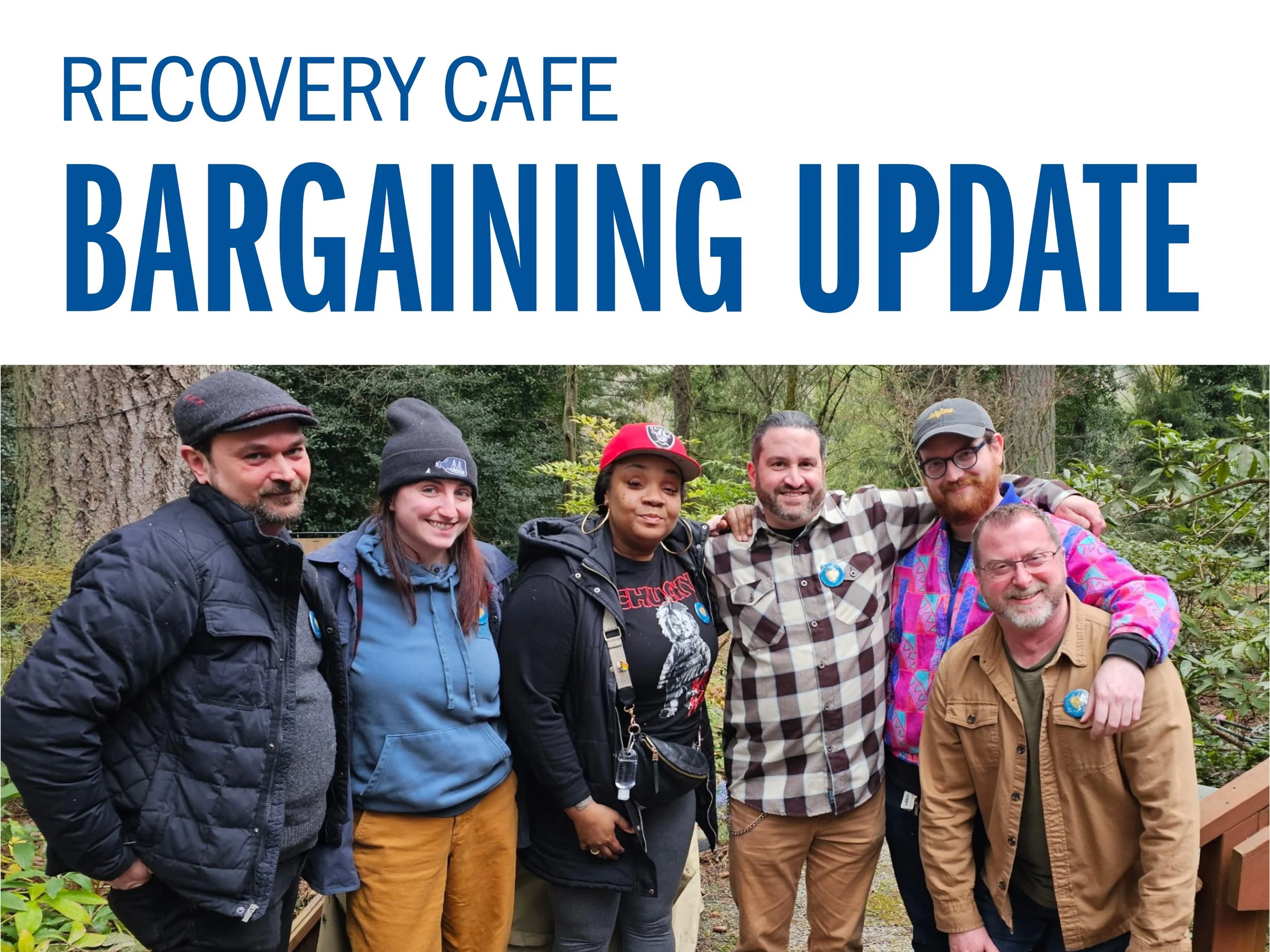By Todd Heuer
When you’re living paycheck to paycheck, the word “strike” can send chills down your spine. You can’t even afford to pay rent and put food on the table—how can you even think about not working?
At this point, I’ve worked at Fred Meyer for 17 years. I’m a vice president on the executive board for UFCW 3000, and I’m sitting across the table from Kroger and Albertsons on the bargaining team right now.
I support doing whatever we can do as a union – up to and including a strike – to get the contract we deserve. But I wasn’t always like that.
Back when I first got the job, the word “strike” scared the hell out of me.
Like many of my co-workers, I was working part-time, couldn’t afford the rent, and was weeks away from eviction. At that time, I felt like I couldn’t support a strike in good conscience.
But then I started talking to other workers about it.
My co-workers told me the union has a strike fund that pays benefits out to workers who walk the picket lines, helping us support ourselves and our families.
On my way into the store one morning, I was chatting with a bus driver, and he said their union and others would stand with us and support our strike.
Then I talked to the truck drivers, and they said they wouldn’t deliver food to striking stores. How long could the CEOs keep the stores open when the supply lines dry up?
Then I talked to customers, and many of them said they’d honor our line. Because – look, we all know this – the customers don’t keep coming back because they want to fatten corporate pockets – they keep coming back because of the customer service we provide.
But we can’t provide that customer service if the bosses run skeleton crews, cut pay, gut health care, and fire people for no reason.
Without a strike-ready union, that’s our future.
As a matter of fact, at a bargaining session last month, Kroger and Albertsons proposed a pay and benefit package that would have amounted to a pay cut and worse health care.
But with a strike-ready union, we can fight back.
Join me and our bargaining team and thousands of other grocery store workers, sign the strike pledge, become a strike captain, and support your coworkers in our fight for us all to have a better life.







